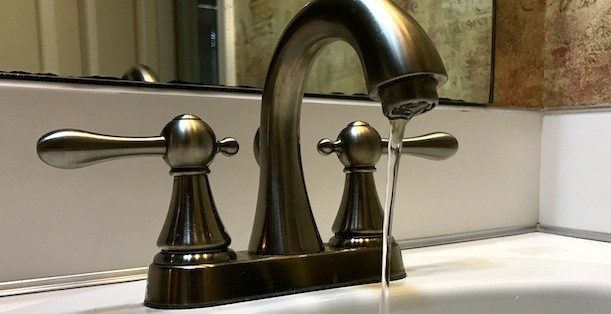Water, sewer numbers show Fort Smith residents pay more for usage than other categories
by February 12, 2024 6:12 pm 853 views

Of the $26.343 million total water charges billed in 2023 by the City of Fort Smith, 32% or $8.534 million was billed to residential customers. The residential customers were responsible for 22% of the total water usage, according to info from the city.
Of the total sewer services billed for 2023, 53% was to residential customers who were responsible for 49% of the usage.
In 2023, Fort Smith billed $26.343 million in water charges and $29.484 million in sewer charges for a combined total of $55.827 million in revenue, down 3.47% from the $57.846 million total in 2022.
In 2023, contract water users – other municipalities and water providers outside the city who contract with the city for water – were billed $7.743 million for water use, or 29% of the total billing. They were responsible for 43% of the total water used. Contract customers made up 1% of the sewer billing and were shown to have contributed 3% of the total sewer volume.
In 2023, retail and commercial customers were billed $5.217 million for water usage, 20% of the total billing for the year. Commercial customers had 15% of the total water usage in 2023. Commercial customers were billed a total of $10.935 million in sewer charges or approximately 37% of the total sewer billing. Commercial customers had 37% of the total sewer volume for the year, the utility revenue report shows.
Industrial customers were billed $4.858 million for water last year, 19% of the total water billing for 2023. They used 19% of the total water. Industrial customers had $3.891 million in sewer billing in 2023, 13% of the total sewer billing. They had 15% of the total sewer volume for the year.
RATE REVIEW
When the city approved a water rate study in April 2023, Utilities Director Lance McAvoy said the city needed the study because of the amount of growth it has seen in customers. At the time, he said instructed Kansas City, Mo.-based Burns & McDonnell, who was hired to conduct the study, to look at what the rates should be for contract municipality customers and residential customers who live outside of the city limits. Many of those customers now pay rates lower than customers inside the city even though the cost to provide water to them is more, McAvoy said. Contract water users pay $1.80 per ccf while the lowest rate for residential customers is $2.24 per ccf, he said.
When the water rate study was presented in December, David Nauman, a senior project manager with 1898 & Co., a division of Burns & McDonnell, presented two proposals that would allow the city to fund the city’s water projects in the capital improvement plan. One of those options included a 0.5% sales tax and rate increases that raise 50% in revenue through rates in 2024. He estimated a sales tax would raise approximately $14.4 million annually.
The second proposal included higher annual rate increases but would not include a sales tax. That proposal utilized bond debt. Both proposals included raising the base charge for wholesale (contract) customers to the same as retail customers.
BOARD SENTIMENT, PLANNED WORK
As he has done in every discussion on water rates, City Director Kevin Settle said during the December discussion on the water study that he wanted to see a larger increase in the rates for contract customers outside the city.
On Dec. 19, the Board of Directors consensus was to learn more about needed water projects and details of a recent water rate study before calling a special election for a half-cent sales tax to help fund water system improvements. Naumann’s report on the rate study projected $367 million needed for projects over the next 5 years.
The study showed costs for the city over the next five years include $161 million for a 48-inch transmission main line from Lake Fort Smith, $76 million for water treatment plant expansion, $66 million for other main line-related projects, $23 million for meters, and $41 million for “other” work.
City Administrator Carl Geffken said Dec. 19 that expenses facing the water department are for “generational projects” that will hopefully last 100-plus years. Director Lavon Morton said that before the board could properly decide on whether a sales tax is needed, it needs to see the entire rate study by 1898 & Co., not just the summary that was presented Dec. 12.
The board also said they wanted to look at smaller projects that might be able to alleviate any worries about water pressure without installing the 48-inch transmission line from Lake Fort Smith.
The agenda for the Fort Smith Board of Directors study session Tuesday (Feb. 13) includes discussions with Hawkins Weir Engineering about the Chaffee Crossing Water Study, other other challenges throughout the water system, and possible mitigation projects to address water supply challenges.
